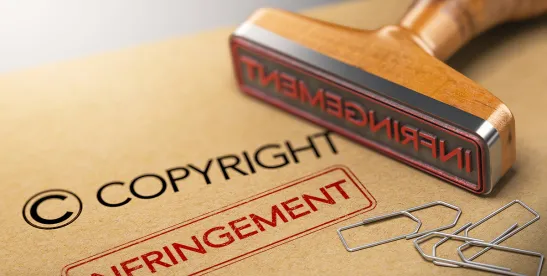As we recently covered in this space, the Supreme Court in Abitron Austria GmbH et al. v. Hetronic International, Inc. held that Sections 1114(1)(a) and 1125(a)(1) of the Lanham Act are not extraterritorial and extend only to claims where the infringing use in commerce is domestic. We anticipated that district courts would soon be addressing this decision in pending and future litigation. The first reported decision has now been issued by the District of Delaware, and it holds that Abitron does not prohibit a party from introducing evidence of foreign conduct in support of an infringement claim under the Lanham Act claim.
The plaintiff in this case, an American supplier of industrial automation tools, sued an Italian company under the Lanham Act based on its alleged sale of gray market, used, and counterfeit products both in the United States and Europe. The plaintiff sought to introduce evidence at trial that defendant had sold counterfeit products to customers in Europe in support of its claim that defendant also made sales to U.S. customers and had therefore committed infringement in the U.S. In fact, the defendant’s foreign and U.S. inventory pools were combined, which the court found could be construed as circumstantial evidence that counterfeit sales were being made in the United States.
During the pre-trial conference held on July 13, 2023, the district judge ordered the parties to provide supplemental letter briefing regarding the impact of Abitron on the pending litigation. After summarizing the Abitron opinion, the judge noted that the case before him was distinguishable from Abitron as plaintiff was not seeking monetary damages arising from defendant’s foreign sales but was rather using foreign conduct to show liability in the U.S. Thus, the court concluded that nothing precluded plaintiff from introducing this evidence simply to bolster its case that infringing conduct took place in the United States.
The takeaway here is that district courts will likely still allow evidence of bad acts that occur overseas where those acts tend to show liability in the U.S. Here, the overlapping customer base, among other things, provided the court with ample ammunition to determine that the foreign conduct was (1) relevant and (2) admissible. Put differently, while Abitron limits evidence of foreign conduct for purposes of obtaining damages related to foreign conduct, evidence of foreign conduct being offered to establish liability should remain admissible even in a post-Abitron world.
The case is Rockwell Automation, Inc. v. Parcop S.R.L. d/b/a WiAutomation, C.A. No. 21-1238-GBW-JLH (D. Del. July 18, 2023)




 />i
/>i

